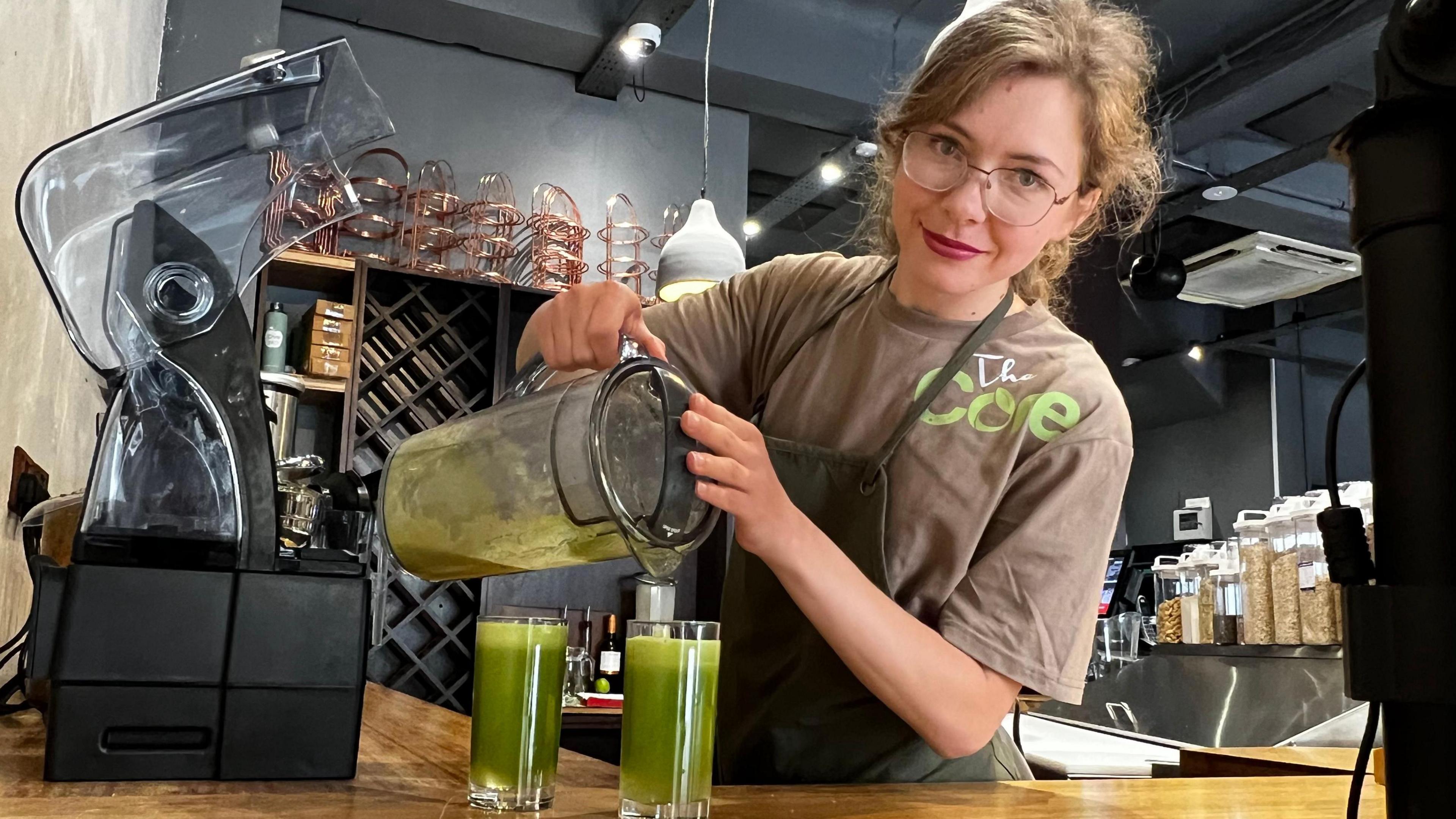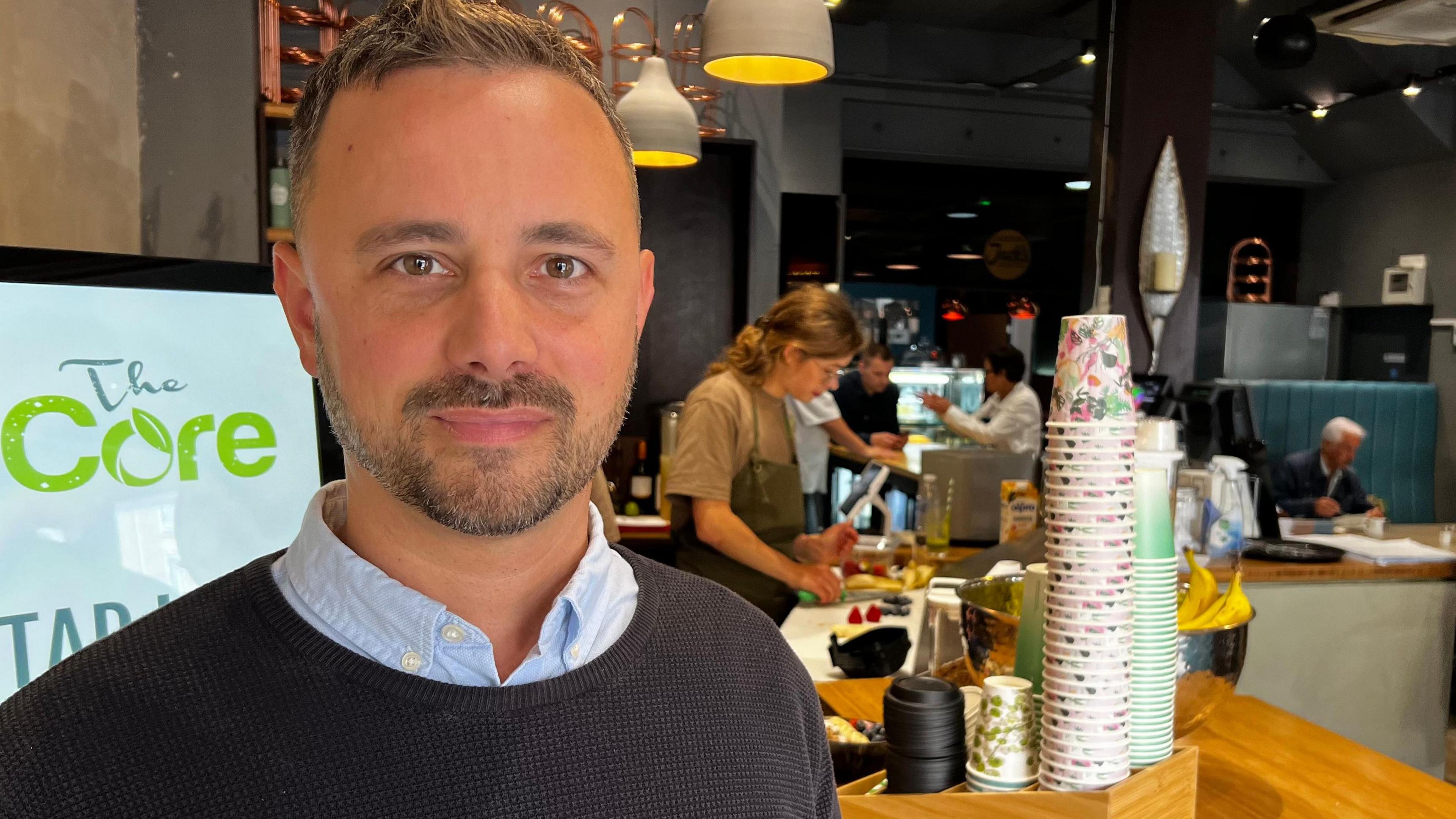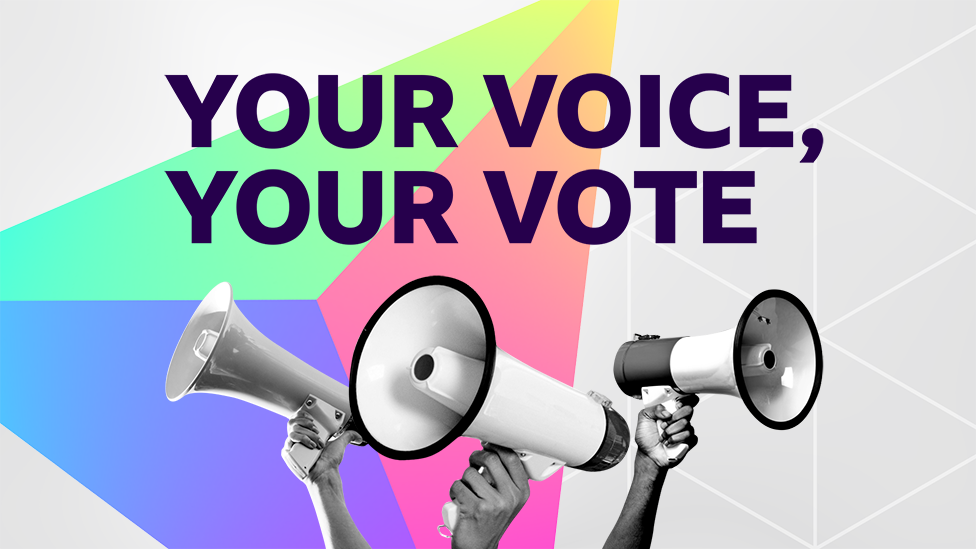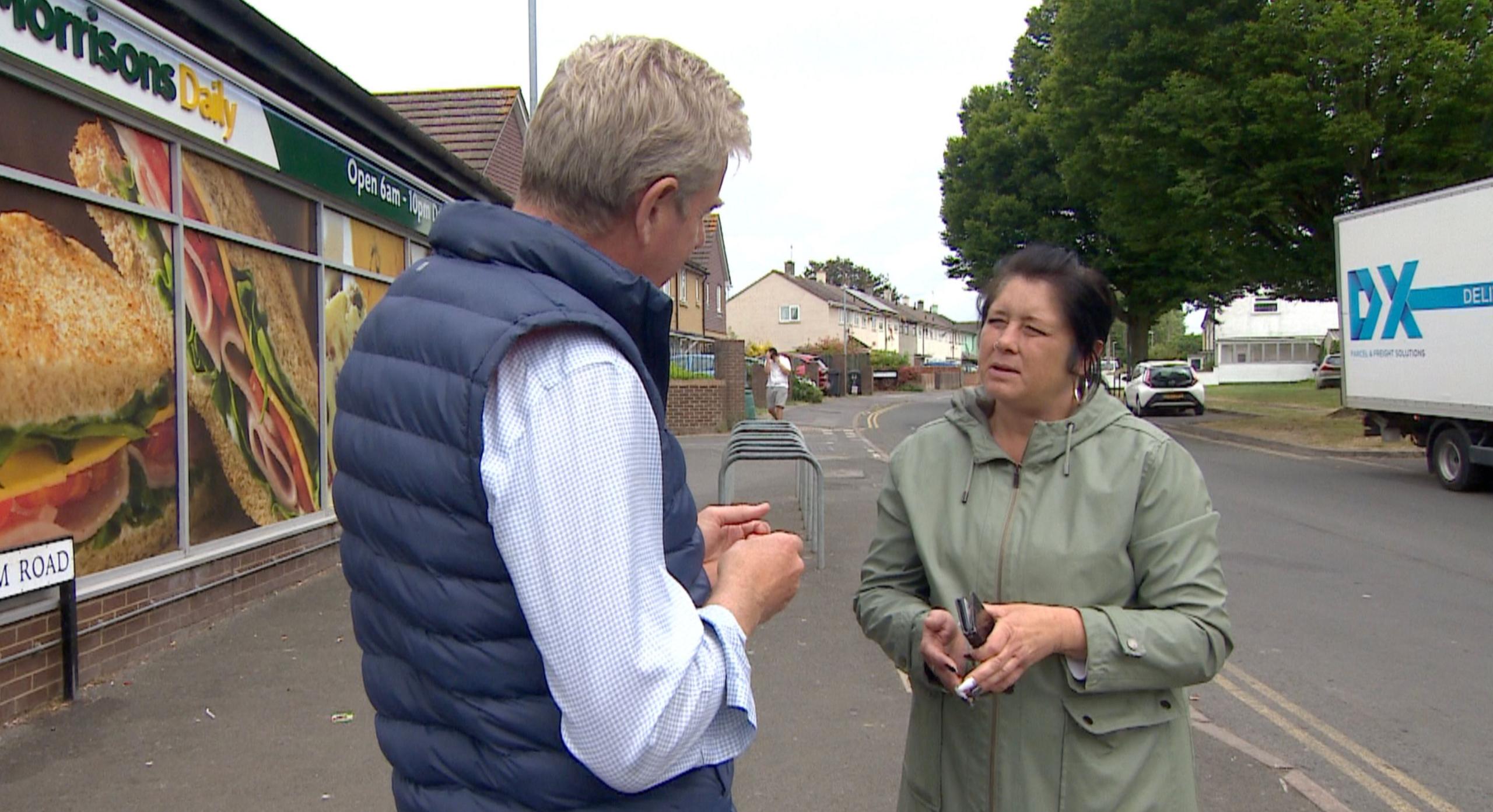Immigration debate 'a massive deal' in melting pot town

Tanya Tymofeienko settled in Swindon after leaving Ukraine when war broke out
- Published
Throughout the general election campaign, politicians have argued about immigration.
For Tanya Tymofeienko, immigration is not a theoretical debate, but a question of survival. The Ukrainian mother-of-two had to leave her home town in a hurry in 2022, and came to Swindon.
“It has been so difficult, and still is every day, to think that two-and-a-half years later there is still a war in my country.”
I met Tanya working in a juice bar in Swindon’s Old Town, blending a smoothie bowl. Blueberries, banana, agave, strawberries; ingredients from all over the world, much like the staff.

Smoothie bowls are made by staff from all over the world at The Core
The Core is a new enterprise set up by Kris Talikowski, a leading Swindon entrepreneur. His family came from Poland to the UK in the 1950s. Immigration, he tells me, is “in his blood”.
He was happy to take Tanya on, one of six Ukrainians he has hired recently.
“They all want to work”, he said.
“They all want jobs, they all want to find some way of contributing and earning their own money.

Kris Talikowski said his Ukrainian staff all want to work and contribute
Mr Talikowski helped set up “Swindon welcomes Ukraine”, a voluntary group of people hosting Ukrainian families. They gave homes to 480 Ukrainian refugees, and worked hard to find them work as well.
“We’ve helped find jobs for about 40, and found them training and development opportunities. It’s been really important for the economy of Swindon.”
Tanya has two young boys to raise as well, and she said the assistance of the Swindon group has been life changing.
“For me, it was such a help to find a home, move to Swindon, get a job. I work two part-time jobs now, it’s been such a support.”

Election poll tracker: How do the parties compare?
- Published3 July 2024
Who can I vote for in the general election?
- Published3 July 2024
At the peak of the Ukraine crisis in May 2022, 10,000 refugees arrived in the UK every week from the country.
In total, about 174,000 Ukrainians settled here under the government’s scheme.
Welcoming Ukrainians is the one thing every political party agrees on.
Everything else is a big row.
How many people should be given work visas every year? Should their families get housing, benefits, NHS care? How should the dangerous channel crossings by migrants in small boats be stopped?
Politicians wrestle with these questions, at least partly because voters are unsure too.

Helen Jones from Wiltshire emailed the BBC's Your Voice Your Vote project, worried about a shortage of housing.
She said: “There are always plenty of homes and funding for those who arrive illegally. It just blows my mind constantly.”
Alan Watson from Gloucestershire is not against immigration itself, but asked: “If you have an increase in population the size of the city of Manchester every year, you need to increase the housing, hospitals and staff, GP surgeries and staff, schools, public transport the equivalent of the city of Manchester every year.”

Stephanie said she is worried that Swindon cannot cope with a growing population
On the streets of Penhill, north Swindon, I met Stephanie, who put it simply.
“It’s a massive deal,” she told me. “I don’t agree with it one bit.
“I’ve had to wait six years for a home, and then they come in and they get housed, they get benefits, and sometimes it is before us.”
There is nuance in people’s opinions too, in a debate often presented in simplistic terms.
Outside a small supermarket, Paul said: “The number of people we have coming in is less than the number of jobs we can apply for.
"So it’s making it more of a challenge for the unemployed to find employment. We could do with holding back a little bit, our borders are a little bit too open.”
In other words, not zero immigration, but maybe a bit less than the 685,000 increase in the population in 2023.
Party pledges
The big parties have responded with pledges to reduce net migration, but stopped short of putting a number on it. Smaller parties, not expecting to win the keys to Downing Street, can be bolder.
Reform want zero net migration, banning all entries except to “essential healthcare workers”.
The Green Party would rejoin the EU’s free movement of people area, re-opening the doors to European migration.
The Liberal Democrats want to scrap the Conservatives plan to send failed asylum seekers to Rwanda. The party would also end the current minimum salary threshold of £38,700, preferring instead a “flexible” arrangement, setting different pay for different types of job.
So what of the bigger parties?
The Conservatives flagship policy has become known as the Rwanda Plan. If elected, the Tories would have planes taking off for Africa "within weeks" with failed asylum seekers onboard. They also want to increase the minimum salary threshold for immigrants, linking it to inflation. On the big question of overall net migration, the manifesto simply commits to a cap on legal visas set by MPs, which will fall every year.
Labour has made much of their objection to the Rwanda plans, which they would scrap on day one if they win. Instead, a “counter-terrorism style” policing unit will target the people traffickers behind the channel crossings. Labour also wants to bring down net migration, but also avoids a target figure. Instead, the party will invest in skills training and punish employers who hire people without work permits.
These are the politicians’ plans. Outside the Fish Bar, Sue is not impressed with any of them.
“They say stop the boats,” the retired nurse tells me.
“I don’t think you ever will, you won’t.
“Whatever anybody says, you can’t stop them coming over. If they want to come over, they will.”
Follow BBC Wiltshire on Facebook, external, X, external and Instagram, external. Send your story ideas to us on email or via WhatsApp on 0800 313 4630.
Your Voice, Your Vote: Mental health crisis in young
- Published2 July 2024
Your Voice Your Vote: 'Single parents are forgotten'
- Published21 June 2024
Your Voice, Your Vote: Improving the health service
- Published18 June 2024